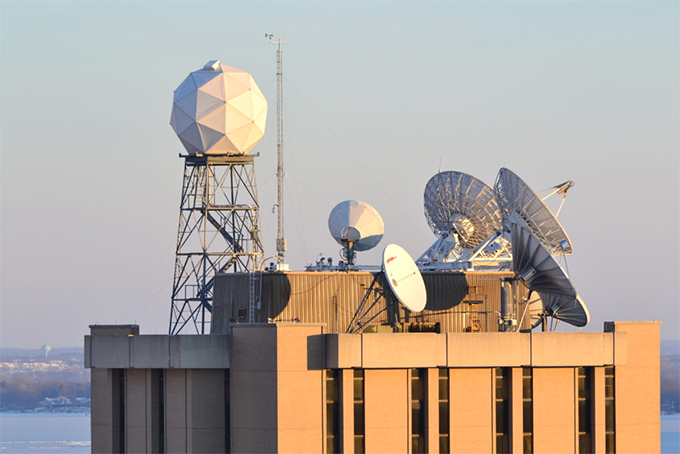NOAA Selects the University of Wisconsin - Madison to Host the Cooperative Institute for Meteorological Satellite Studies

29 May 2020 -
The National Oceanic and Atmospheric Administration (NOAA) announced that it has
selected the University of Wisconsin - Madison (UW - Madison) to host NOAA’s new
Cooperative Institute for Meteorological Satellite Studies (CIMSS). CIMSS will
focus on using satellite meteorological data, products and services to support
weather and climate information needs. NOAA made the selection after an open,
competitive evaluation. The selection comes with an award of up to $150
million over five years, with the potential for renewal of another five years
based on successful performance.
CIMSS operates within the Space Science and Engineering Center (SSEC) at
the UW - Madison. In cooperation with NOAA, the new cooperative institute
will perform innovative research that aligns with priorities of NOAA’s
Satellite and Information Service (NESDIS) and National Weather Service.
CIMSS will emphasize satellite meteorology in support of weather and
environmental analysis, focusing on calibration and validation of satellite
data, use-inspired product development, climate data records, assimilation of
satellite data in numerical weather prediction models, outreach, and education.
It will also pursue and implement advances in cloud computing, machine learning,
and computational intelligence to exploit "big data."
CIMSS builds upon four decades of excellence in environmental satellite
remote sensing and applications in support of NOAA's mission to understand and
predict changes in climate, weather, coasts and oceans, and share that knowledge
and information with others. The new cooperative institute continues the heritage
of previous Cooperative Institute for Meteorological Satellite Studies, which
was first formed through a Memorandum of Understanding between the UW-Madison,
NOAA, and the National Aeronautics and Space Administration (NASA) in 1980,
and expands into new and emerging areas of applied research and technology
to support NOAA in more efficiently and effectively achieving its mission
goals and objectives.
|

